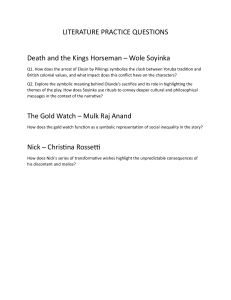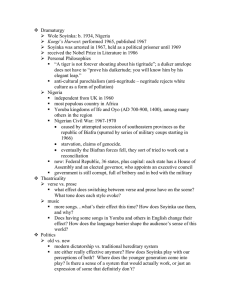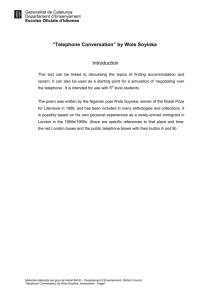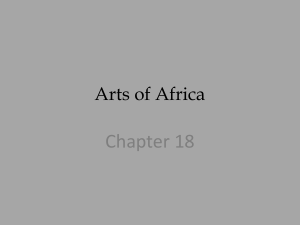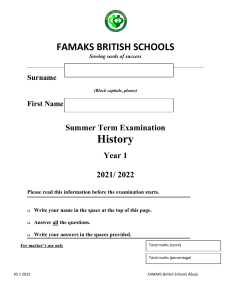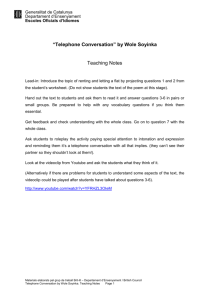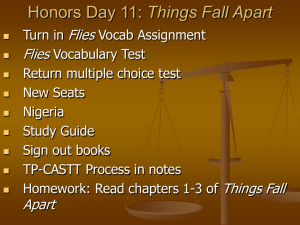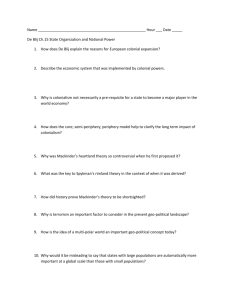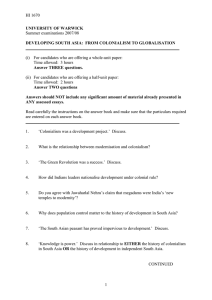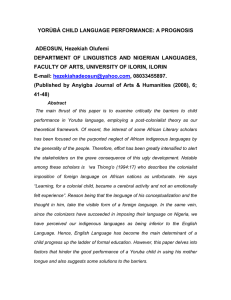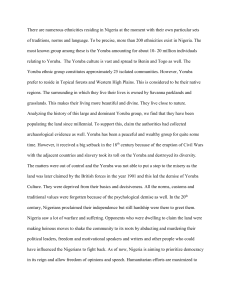Lect #16 Death and King's Horseman
advertisement
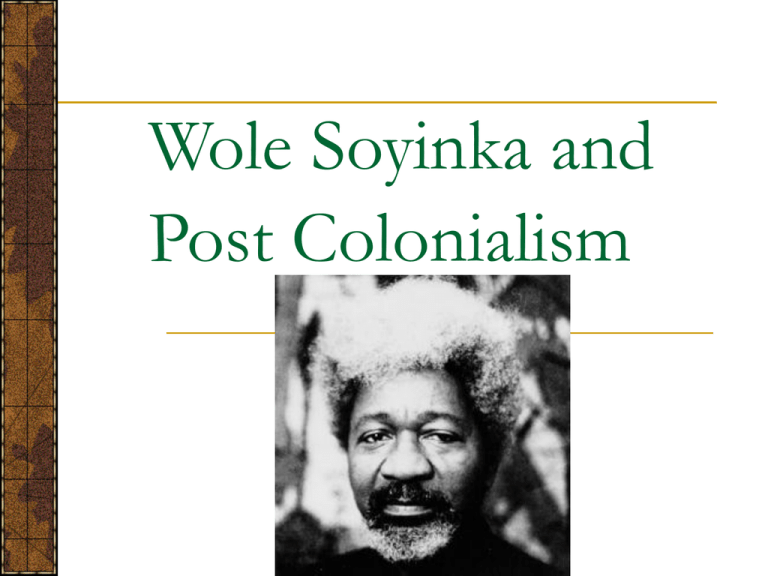
Wole Soyinka and Post Colonialism What is Colonialism? Political Domination of Another People Their leaders cannot make decisions that aren’t agreed upon by British The Establishment of a Government Often figure head rulers are set up to placate the masses, but power remains with British Large-Scale Religious Conversion Christianity becomes the only acceptable, civilized religion Forced Economic Dependence Trade happens, but usually raw materials taken for a cheap price from colony and more refined items sold back to colony from Britain at a much higher price The Building of an Infrastructure (roads, railroads, hospitals, schools, etc.) Justifications for Colonialism Economic Colonialism provided a huge natural resource base for small European powers Colonies provided ready markets for finished products Religious: The need to spread Christianity Cultural: “The White Man’s Burden” Because British felt they were more civilized and had the only correct religion, they felt it was imperative that they go out and get everyone else to conform for the sake of their souls. The British Empire in 1914 Colonial Africa Post Colonial Africa Nigeria Nigeria Largest country in Africa (130,000,000) 50% Muslim, 40% Christian, 10% Traditional Comprised of various tribal societies with independent cultures and histories. Yoruba Igbo Hausa Nigerian Literature Nigeria is one of the most divided nations in the world, both religiously and tribally Consequently, it has had an extremely difficult time cohering together as a nation It has also given birth to two of the most important modern writers in the world: Wole Soyinka (Yoruba) and Chinua Achebe (Igbo)—both of whom have had to write in English in order to reach the majority of people in their own country. Wole Soyinka Educated in Europe, especially in the works of Shakespeare. Later adopted the traditional Yoruba religion. Worked in his dramas to combine Yoruba traditions with Western literary forms. Won the Nobel Prize for Literature in 1986. The Duty of the African Writer To incorporate the precolonial mythos of the people into literature To acknowledge the effect that colonialism has had on the culture To help to forge a new national identity that combines pre-colonial and postcolonial elements into something new and independent. Death and the King’s Horseman Based on a true event that happened in 1946. Dramatizes the conflict between the precolonial and the colonial that is at the heart of postcolonialism. Uses a definition of “tragedy” that combines Western ideas with Yoruba myths: tragedy seen as transition
